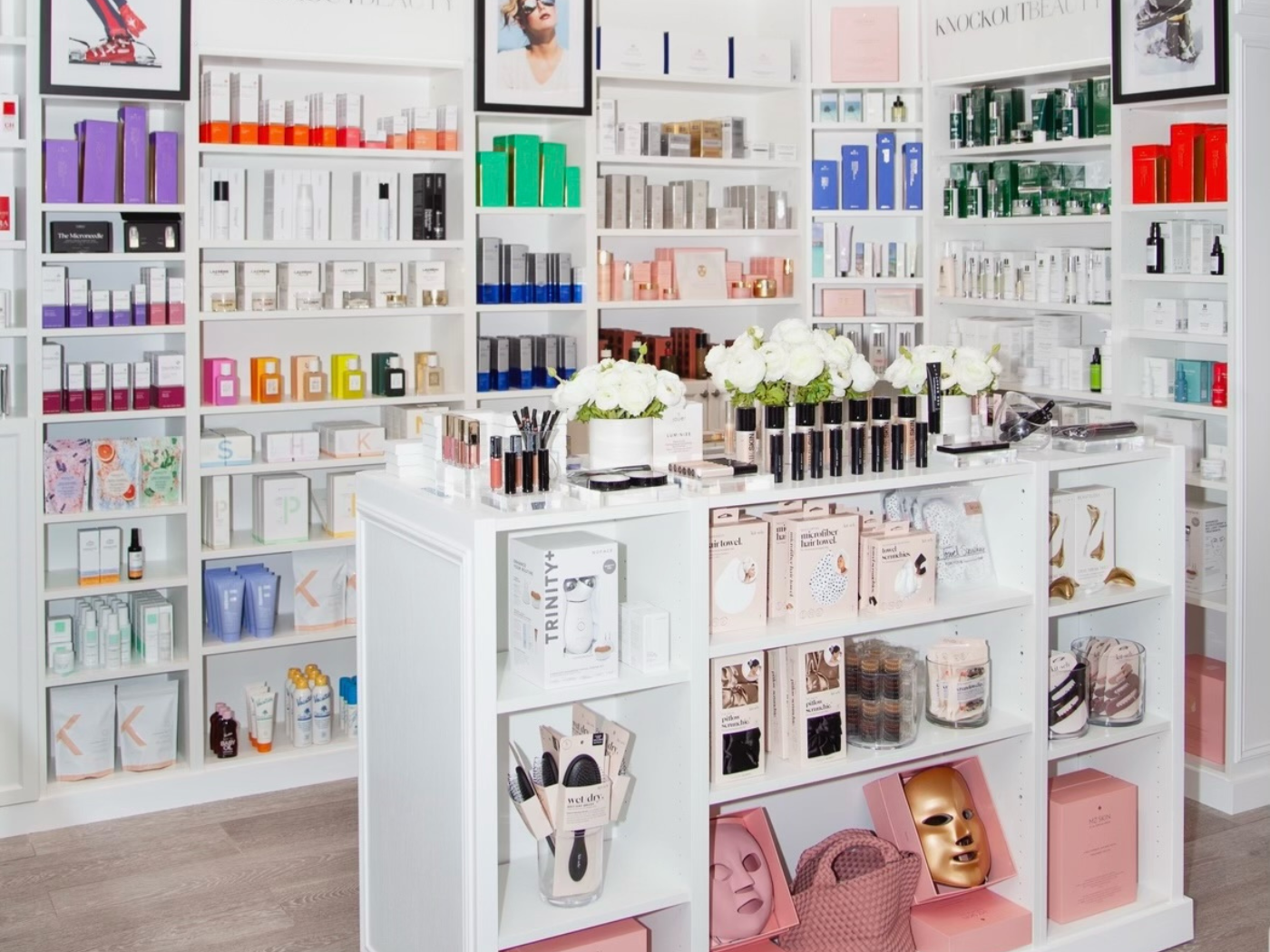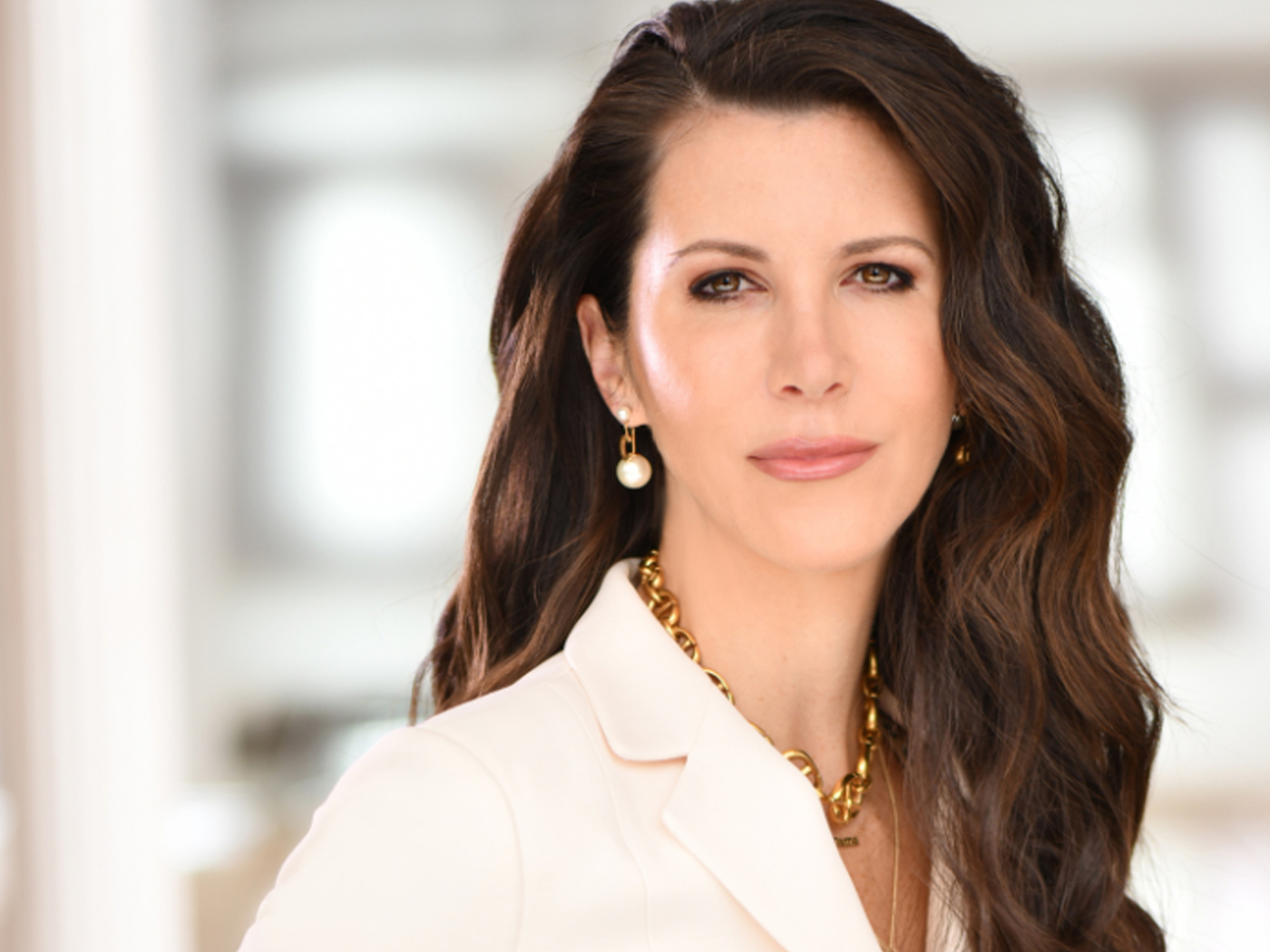Julia Goldin, Global Chief Marketing Officer, EVP, Revlon, couldn’t ever be described as risk averse. Taking risks has just about defined her career.
“I learned this once and I swear by it: We were born with two fears—fear of heights and fear of loud noises. All other fears are acquired,” Julia said.
Born in St. Petersburg, Russia, Julia’s family moved to Chicago in the 1980s. After graduating from the University of Illinois, she worked in marketing at a genetics institute before getting her M.B.A. from The University of Chicago. From there, she worked at Quaker Oats for three years, and then accepted a Global Brand Manager position at Coca-Cola.
Her career moved fast over the next 13 years at Coke. She relocated to Atlanta, where she started out as Global Brand Manager for Diet Coke. After two years in that post, she moved to London for a succession of marketing jobs, eventually taking the role of UK Marketing Director, and after that, Divisional Marketing Director for Northwest Europe.
Despite the challenges that come with moving from country to country, Julia embraced the opportunities that came with each move. In the U.K., there was a big opportunity to reignite the brand to connect better with British consumers. So, in 2005, Julia oversaw Coke’s sponsorship of the Football League Cup, which included changing Coke’s iconic red and white packaging colors to the respective colors of 74 Football League teams. Soon, there were blue and white, and green and white—and so on—colored Coca-Cola field side boards, as well as a national poster campaign featuring all 74 Coca-Cola boards in different colors.
“It was a good decision, but to do an ad campaign and to launch a sponsorship by turning our logo from the red and white to the color of each club was a massively risky thing to do. But if there was any brand that could afford to do it, it was Coke. It was a real leadership statement.”
Then, Japan came calling.
In 2007, Julia took on the role of deputy Chief Marketing Officer for Coca-Cola, Japan. While some of her Japanese colleagues spoke English, most didn’t, and communicating with her predominantly male colleagues took place with a translator and headphones.
“It’s the standard mode of operation. And, you’re constantly in translation mode. So when you’re expressing yourself, you’re being translated, and so you always need to check to make sure you’re being understood. It makes you operate in a different way. Japan is a very unique culture where people aren’t used to having younger, female bosses. Everything was an adjustment.”
Japan also presented leadership challenges.
“You have to really earn it. It wasn’t an easy experience. People were like ‘Why would you do that? It’s such a tough environment, it’s tough on women, it’s tough on relationships and family.’ But I was really keen to learn and experience that culture. It was such a huge personal growth experience.”
Part of what made Japan so rewarding, she said, was the opportunity to mentor and help bring out leadership qualities in a Japanese woman who she believed had high potential. “She was like this little girl with a small voice but she showed so much potential. Being a woman in business in Japan is difficult. The women don’t always believe in themselves and they’re not really given much opportunity. My task was to mentor her to become a business leader even though she said she couldn’t do it. But I just kept coaching her on an ongoing basis, helping her to get men to cooperate with her and to work with her. It was a tremendous experience.”
Working with people is actually a key to her management style.
“I am very much a builder—I don’t like working in a silo or behind a closed door. I also enjoy a good debate with a good resolution.A good workday is one when I feel that we have made progress and are moving forward. It’s also a day when I know that people around me feel good about their work, satisfied and confident.”
Advising emerging leaders is something she feels strongly about, too. Her top three advice nuggets for up-and-comers are:
• Don’t get over-promoted when you’re young—take the time to learn and develop your skills; it doesn’t happen overnight. At the same time, go for it—because it’s not age but talent and ability that define success and opportunities.
• Take more risks with your career and don’t stick to the safest options and choices. It’s always easier to say no to things that are a little scary than to say yes. Also, don’t hurry—focus on experiences and accomplishments, not on speed of promotions and titles.
• Finally, and most importantly, focus on health and family. We are always juggling three balls—career, family and health. The only one that will rebound is career—don’t drop the other two.
While she was in Japan, Julia was tapped for the CMO position at Revlon by its chairman, Ronald Perelman. She wasn’t looking specifically to move into beauty per se, but she did find the category unique.
“It’s a real marriage of art and science. And the challenge of igniting an iconic brand like Revlon was extremely compelling,” she said.
When Julia joined Revlon in 2010, she focused on developing a point of view for the brand—rather than a point of difference—and channeling that into all brand activities, tapping new brand ambassadors, creating a new communications model and connection points, and building fresh ways to go to market.
“The culture in the company today is much more energetic, focused on growth and inspiration. People are proud of what they see. I feel that we are more brand, consumer and innovation driven as an organization. I think what’s working for us in marketing is our strong evolution toward digital and social media. We’ve brought in young people with new knowledge and insight, people who don’t work in traditional ways and who give us a fresh perspective.”
With risk-taking seeming to be second nature, does Julia have any fears? Not really, but she does have advice for dealing with the unexpected plot twists that come at us from time to time.
“Take a deep breath, wait for things to settle, focus on finding the positive in every experience and make the most out of it. Sometimes, what feels difficult has a big payoff at the end. No pain, no gain.”



